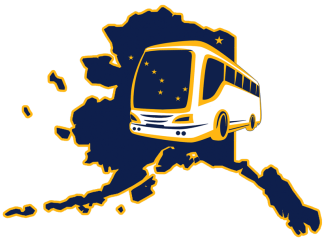What Time of Day Should You See the Northern Lights?

Aurora Borealis is known as one of the most beautiful wonders in the world. For thousands of years, humans have observed auroras occurring in the Arctic. And thanks to modern technology, every year people from all over the world now travel to the Arctic on vacation to see the Northern Lights, see them with their own eyes and enjoy the impressive variety of lights. increase. But if you’re planning a trip to the Arctic to see the Northern Lights, you might be wondering what season is best for viewing.
Auroras require a dark night sky with few cloud cover as well as an optimal viewing point. Here’s how to determine the best time to see the Northern Lights.
What Time of Day Should You See the Northern Lights?

As you probably already know, you need to go to the Arctic during the winter season to see the Northern Lights. You can’t see the northern lights during the day because the sunlight drowns out the aurora spectrum. Due to the tilt of the Earth’s axis of rotation, the length of the day at the North Pole varies significantly throughout the year. It is almost always broad daylight in summer and almost always dark in winter. As such, it’s best to visit the Arctic during winter to maximize your chances of seeing the Northern Lights.
Additionally, the afterglow of the Arctic must be taken into account, even in winter. Contrary to popular belief, much of the Arctic does not go completely dark in winter. With the exception of the Arctic, much of the Arctic receives a few hours of daylight even in winter (although the Arctic is permanently dark only around the winter solstice in December). To see the Northern Lights, you need to pick a time when there is no sunlight in the sky.
Generally speaking, the best time to see the Aurora Borealis is between 9.30pm and 1am. This is the time when the sky is darkest and the sun is furthest from the sky, giving you the best chance of seeing the Northern Lights. Most recorded auroras occur during this time period. Additionally, this time of day is the most convenient as you can travel during the day to your aurora viewing point and then return home to sleep.
Please also note that Northern Lights can and do occur outside of these times. In some parts of the Arctic, northern lights have been observed as early as 4pm and as late as 6am. However, twilight persists during these times, greatly reducing the chances of seeing the Northern Lights. Therefore, schedule your Northern Lights viewing between 9.30pm and 1am.
Also keep in mind that auroras are unpredictable as they are greatly influenced by solar activity. Solar cycles can and do be tracked, but the amount of solar wind (particles emitted by the sun that cause aurorae) changes regularly and cannot be predicted in advance. It’s quite possible that you won’t be able to see the Northern Lights on a particular night because the solar wind that causes them is weak.
However, northern lights are a regular phenomenon in winter in the northern parts of the world. Despite the claims made in some sensational articles, aurorae will continue to occur regardless of changes in the solar cycle because the Sun always emits a solar wind. If you spend at least a few days in the Arctic during the winter, you’re guaranteed to see the Northern Lights at least once.
Make sure you’ve done everything you need to do before you leave and get plenty of rest so you’re ready to see the Northern Lights at the perfect time. Also, be well prepared by wearing appropriate clothing. Rural areas are the best viewing locations, as light pollution from urban areas often obscures the aurora. Wear layers of heavy clothing to keep warm during the coldest hours of the night. It may also be a good idea to have some hot drinks such as coffee or hot cocoa on hand, and depending on the tour you choose, the operator may provide them.
summary

Aurora viewing trips may seem complicated, but they really aren’t. Consider what time you go, where you go and what time of day you leave, and you’ll be enjoying one of the greatest miracles on earth. If you’re curious about the Northern Lights, why not book an Northern Lights viewing trip and see for yourself? It will be one of the most memorable experiences of your life.
